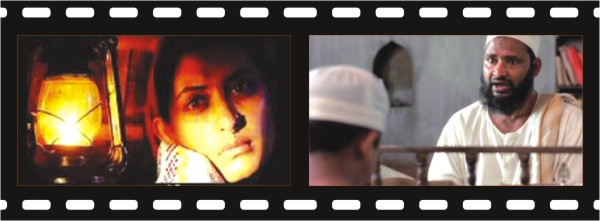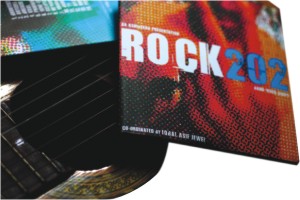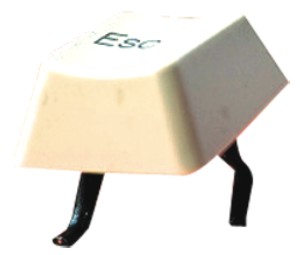Freedom on the Silver Screen
By Orin
 It is a sad fact that although our movie industry manages to churn out a handful of movies each month, the number of liberation war movies is heartbreakingly low. However, the few good movies made about the war of independence are some of the best this country has ever produced. In a few years time, we won't have the heroes of our independence to tell us stories of the war; the tales of hope, of ultimate sacrifices, of utter despair and of victories from the jaws of defeat, and films are one of the few ways those stories can be kept alive.
It is a sad fact that although our movie industry manages to churn out a handful of movies each month, the number of liberation war movies is heartbreakingly low. However, the few good movies made about the war of independence are some of the best this country has ever produced. In a few years time, we won't have the heroes of our independence to tell us stories of the war; the tales of hope, of ultimate sacrifices, of utter despair and of victories from the jaws of defeat, and films are one of the few ways those stories can be kept alive.
Here we have a list of war movies made over the years; you guys might have heard of some of them, but find the time to see some of them this month.
Ora Egaro Jon (1972): Ora Egaro Jon is the first movie released on our War of Independence, most of the lead roles were played by actors who actually fought against the Pakistani armed forces. Directed by Chashi Nazrul Islam, this movie is considered to be one of the best films based on the Liberation War and is a true classic.
Aguner Poroshmoni (1994): Revolving around a family living in the war-torn Dhaka, Aguner Poroshmoni is a poignant tale of the liberation war that also marked the directorial debut of Humayun Ahmed. The cinematography or musical score might not have been the best among all the movies mentioned here, but this movie is a gem, considering the plot and the performances of the actors. Gripping and convincing, this is one war movie that mixes humour in the storytelling, resulting in an incredible film.
The Clay Bird (Matir Moyna) (2002): Matir Moyna was the very first movie selected for presentation at the prestigious Cannes Film Festival as well as the first movie from Bangladesh to compete for the best foreign language film at the Oscars; it is a movie that earned our movies some accolades across the world. Directed by Tareque Masud, this is a film about the rising tension across the country that eventually led to the war. The protagonist is a boy who has to go to madrassah for his religious education and finds himself conflicted with the lifestyle. Set in the 1960s, this movie showcases some historical occurrences and emotional turmoil of that time. It boasts an incredible cinematography and is a definite must-watch.
Shaymol Chhaya (2004): Shaymol Chhaya tells the story of the war-ravaged people who find their fates tangled up as they try to find a safer place. This movie has exceptional emotional value, tugging at the heartstrings of the viewers at every chance. The cast, consisting of famed television and movie actors, perform superbly making it the best Humayun Ahmed movie to date.

Joyjatra (2004): Directed by Tauquir Ahmed, Joytra tells a poignant story of a village community fleeing towards safety on the background of the '71, and finding solace in each other's company. It has brilliant cinematography coupled with a strong emotional message, and is definitely worth giving a shot.
Apart from these brilliant feature films, documentaries made during and after the liberation war is also a great way to get an insight of the war. 'Stop Genocide' by Zahir Raihan provides an extraordinary view into the war-struck country that should be seen to realise the sufferings of the people during those nine months.
Independence Day is about realising what we have, and what we had to sacrifice to have it. So, instead of just putting on a red-green t-shirt and going about your businesses, make the time to watch any of the films here, even if you have seen it before.
Sources: www.banglacommunity.com, wikipedia.org.
Deshi Tunes
THE NEO-PATRIOTIC WAVE
 Our forefathers may have done the liberating for us, but there's still a lot of work that we kids have got left to do. Songs such as “Purbo Digonte” and “Surjodoye Tumi” have been inspirational to the young soldiers of the previous generation. But, like it or not, these songs don't hold the same appeal for most of the youngsters today. This gang of kids has its own set of tunes that it rocks to. Here are some songs that say 'Bangladesh' for Generation Y:
Our forefathers may have done the liberating for us, but there's still a lot of work that we kids have got left to do. Songs such as “Purbo Digonte” and “Surjodoye Tumi” have been inspirational to the young soldiers of the previous generation. But, like it or not, these songs don't hold the same appeal for most of the youngsters today. This gang of kids has its own set of tunes that it rocks to. Here are some songs that say 'Bangladesh' for Generation Y:
Shadakalo by Fuad - This one speaks of freedom. Of how we could do so much more if we just broke out of our boundaries. We are born independent, but choose to live within our shells. Shadakalo calls out to that restless spirit in us to burst out into the sunlight.
Cholo Bangladesh by Cryptic Fate - It's not just a cricket song. It's a mass movement that mobilises an entire nation. A beautiful uplifting chorus makes this a fantastic singalong.
Teer Hara by Artcell - One remix that actually did justice to the original, the Artcell touch was just what this song needed to make it a battle hymn for today's crowd. Also check out the cover by Brigade 71. Great guitar work.
Shoto Asha by Shunno - Shoto Asha is a song that dares us to dream, and then it nags us to get up and chase that dream. Strong vocals with a memorable guitar solo makes this one a favourite.
Cholo Shobai by Fuad - A fun, uplifting song that manages to inspire without being too serious.
Bangladesh by Stoic Bliss - Ignore the accent, and you get a gem of a song. All the more touching when you learn that this was made by expats living in New York. This is probably the only song that uses hip-hop to show its love for Bangladesh. Just goes to show how the deshi spirit can transcend all boundaries and musical genres.
Akash by Watson Brothers - If one song could sum up the youth of today, this has got to be it. This one brings out the curiosity and sense of adventure in all of us. We are ready to leave behind our past baggage to go out there and explore the world. And while we're at it, this is the perfect song for us to take along.
Joyodhoni by Nemesis - A strong voice against corruption, nothing could be more relevant right now. Joyodhoni fiercely stands by the youth doing the right thing, no matter what the previous generations have taught us.
Tumi ki Shara Dibe by Black - …and this has got to be the best of them all. Beautifully stirring, this is what music does best - it moves and inspires. Practically the national anthem for our generation, school assemblies would show a lot more spirit if this was sung alongside dear old 'Shonar Bangla'. 'Tumi ki Shara Dibe?' is a poignant reminder of how this is, after all, OUR country, and calls on us to take responsibility.
Special mentions also go out to: Kandari Hushiar by Artcell, Shopoth by Tahsan and Nostalgia by Vibe

In the Matrix trilogy, we were given a glimpse of a world where artificial intelligence has taken over, where technology prevails over all human interactions. We are still far from any such events pervading our existence, for the time being technology is still one of our very best friends. The world around us is changing rapidly, thanks to all the revolutionary technologies sprouting out of the ground.
Bangladesh, despite being a tiny speck of land in South Asia has imbibed extensively in the sea of technology and technological development of the 21st century. Nowhere is it more prominent than in the fields of low-cost engineering and information technology. The influence of the World Wide Web in a society as dogmatic as ours has been staggering in recent years. Who would've thought that someday you can buy groceries or sell your items, online, right from your house in Dhaka or Chittagong or some other city with internet connectivity? Websites and web portals like Clickbd or Cellbazaar have made this into a reality. These websites even have SMS notification options which enable you to browse listings right from your mobile phone.
Then there are the e-learning portals, like “Champs21” a joint venture by The Daily Star and Team Creative. The online portal allows both students and parents to interact with teachers and professionals from academia, take exams online, and receive scores and evaluation reports periodically, all for a nominal fee. Portals like these where education and interaction go hand in hand are definitely a way forward for the whole learning experience.
Besides web-platforms, technological advancements in Bangladesh have also come in the fields of information technology and information exchange. Bangladeshis can ceaselessly integrate their phonetic skills to documents, websites and forms, over conversations and chat windows by writing in their own mother tongue, “Bangla”, thanks to cross-platform, phonetic, graphical keyboard layout changers like the Avro Keyboard. Brainchild of software wunderkind Mehdi Hasan Khan, Avro enables users to write Bangla in English letterings and see them change to their own mother tongue, in real time, thus removing the tedious process of remembering complex keyboard layouts altogether. The advent of software like Avro has seen a rapid popularisation of Bangla in social networking websites, blogging platforms and the Internet in general.
 Bangladeshis have started making their mark developing software and application programming interfaces (APIs) for world renowned, multinational internet search providers and cloud computing conglomerates like Google. Graduates from BUET and other engineering universities have received commendations in Google's “Summer Of Code” (GSOC) earning stipends for their contributions in Google-sponsored open-source software coding initiatives.
Bangladeshis have started making their mark developing software and application programming interfaces (APIs) for world renowned, multinational internet search providers and cloud computing conglomerates like Google. Graduates from BUET and other engineering universities have received commendations in Google's “Summer Of Code” (GSOC) earning stipends for their contributions in Google-sponsored open-source software coding initiatives.
Even in Bangladesh, the Internet now acts as a powerful tool for organisation and protest. For example, after the unfortunate incident of pelting rocks at the bus carrying the West Indies players after the Bangladeshi defeat in this year's cricket World Cup, an event was declared immediately on Facebook by the rational majority of Bangladesh to apologise to our foreign guests. The event turned out to be a complete success and received national and international acclaim.
Much has been said about “Technology being overrated”, but at the end of the day, despite many of its shortcomings, “technology” doesn't really stand as an “antithesis” to our efforts and aspirations. Instead, it is a complement to the ever-improving state of civility and freedom for all. Bangladesh is well on its way to become a world leader in technical and information revolution unfolding everywhere.
